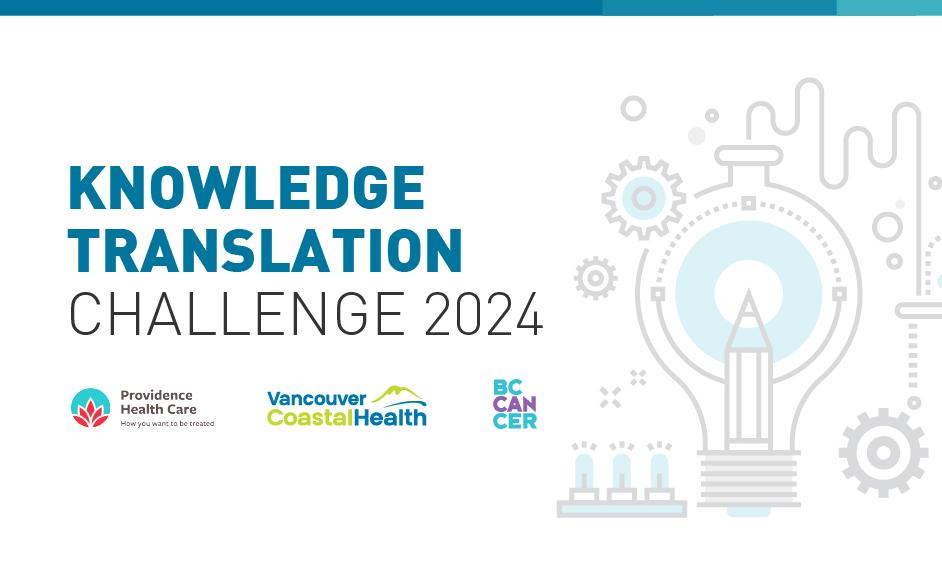
Congratulations to this year’s recipients of the Vancouver Coastal Health Research Institute Knowledge Translation Challenge Awards.
Knowledge translation is the art and science of moving evidence into health care policy and practice. Vancouver Coastal Health Research Institute (VCHRI) is proud to support health care professionals to effectively implement evidence-based practice changes to improve patient care. The Knowledge Translation (KT) Challenge, a program run in collaboration with BC Cancer and Providence Health Care, is grounded in capacity building and facilitates health care providers to work with experienced investigators to share knowledge and build connections.
The team leads of the 2024 KT Challenge projects are:
- Winnie Au, nurse clinician, VCH Perioperative Pain Service
- Kirsten Carter, coastal director, VCH Perinatal/Pediatrics Program
- Caitlyn Cater, clinical nurse specialist, VCH Thoracic Aortic Disease Program
- Bonnie MacCoy, case manager and clinical exercise physiologist, Vancouver General Hospital (VGH) Cardiac Rehabilitation Clinic
- Aaron Sihoe, registered dietitian, Richmond Community Health Access Centre
- Bridget Simpson, clinical resource nurse, VCH Trans Specialty Care
- Kristy Tang, Indigenous nurse educator, VCH Indigenous Patient Experience Team
- Harold Waldman, clinical educator, Urgent and Primary Care Centre Regional Program
- Joyce Wong, public health dietitian, Pacific Spirit Community Health Centre
Increasing knowledge about postoperative pain management

Project title: Development of an online learning module to improve nurses’ knowledge about postoperative pain management in inpatient surgical units
Pain after surgery is an anticipated part of recovery that continues to remain undertreated despite readily available treatment options. Inadequately treated postoperative pain creates negative patient experiences and leads to complications, including mobility limitations, respiratory depression, increased systemic opioid use and its associated side effects, and the development of chronic pain.
There is currently no standardized educational approach at VGH to ensure that nurses across all inpatient surgical units are consistently and reliably provided with information about postoperative pain management best practices. To address this information gap and to improve patient care, the study team is developing an online pain management learning module accessible to all VGH inpatient surgical nurses.
“Our aim is to prevent misinformation and to minimize any variability in care practices that may contribute to poorly treated pain and other adverse effects,” says Au. “Moving forward, our goal is to expand this pain management learning module to all inpatient surgical units at VGH and incorporate it as part of new hire unit orientation."
Advancing the care of newborns in remote and rural communities
Kirsten Carter
Project title: Supporting neonatal resuscitation in rural communities
In collaboration with coastal communities, the study team will focus on standardizing equipment and developing educational materials for registered nurses throughout coastal VCH sites to support neonatal resuscitation. They will also support a simulation program that emphasizes advanced neonatal resuscitation skills, including airway management, respiratory support and infant stabilization.
“Providing consistent and standardized equipment and education to the teams will enhance the quality of care and patient experience for birthing persons and their families,” says Carter. “We are looking forward to engaging with coastal communities on the development of this important initiative.”
Empowering patients with self-management tools for thoracic aortic disease
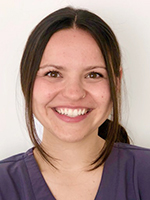
Project title: Creating an evidence-based patient education program for people with newly diagnosed thoracic aortic disease
Thoracic aortic disease (TAD) refers to serious conditions that affect the aorta: the largest artery in the body which carries blood from the heart to the body’s organs. The thoracic aorta is located in the chest region outside of the heart. Conditions in which the thoracic aorta is weakened, enlarged or torn can be life-threatening. Some people with TAD do not show symptoms until their condition becomes serious, resulting in a diagnosis occurring while in hospital. Patients diagnosed with TAD in hospital often face significant anxiety and uncertainty, which can adversely affect their mental well-being.
To better support patients’ mental health, the study team is developing a structured patient education program that includes an educational brochure and sessions with a clinical nurse specialist before patients are discharged from VGH cardiac care. This will provide patients with essential information about their condition and help them feel more confident as they continue their care journey at home.
“Extensive literature supports the effectiveness of patient education programs in improving health outcomes, empowering patients and reducing anxiety,” says Cater. “Leveraging this evidence, we are confident that our program will equip patients with the tools needed for improved self-management and better long-term outcomes.”
Resistance training to improve cardiac rehabilitation outcomes
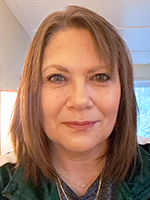
Project title: Implementing the foundations of movement and strength into VGH cardiac rehabilitation
Canadian movement guidelines recommend a minimum of two resistance training sessions per week to maintain cardiovascular health and muscular strength in people over 65 years of age. However, the VGH Cardiac Rehabilitation Program (CRP), resistance training is only offered once per week.
To increase physical activity among VGH CRP patients, the study team will implement the Fundamentals of Movement and Strength (FoMS) program. This program will provide patients with a second in-person resistance training session per week and a comprehensive overview of resistance and balance training exercises using bodyweight, resistance bands, free weights and exercise machines.
“Integrating FoMS into the VGH CRP can address concerns around activity levels by improving strength, stability and function,” says MacCoy. “Providing a second supervised resistance training session per week that patients can access as part of their care will aid them in achieving movement guideline recommendations and improving their health.”
Educational materials to build understanding of complex eating decisions
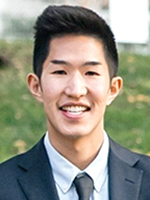
Project title: Increasing understanding around complex feeding decisions through the development of patient education materials
Eating and drinking at risk (EDAR) refers to patients who have swallowing difficulties but continue to eat and drink despite their greater risk of choking. EDAR decisions are both clinically and ethically complex, requiring clear communication between health care teams, patients and their loved ones. It is essential that patients are fully informed about their medical prognosis and the associated risks of EDAR before making EDAR decisions.
In previous research, the study team interviewed doctors working at Richmond Hospital and with the Richmond Integrated Hospice Palliative Care Program about their experiences providing education to EDAR patients. Preliminary results yielded recommendations to create written educational materials that can be provided to patients and their families.
“Building on our team’s previous research, we will create an online resource and organize educational sessions to create awareness and encourage the use of this handout among VCH health care staff,” says Sihoe. “This will facilitate more effective education around EDAR and can lead to patients and families making more informed decisions that are reflective of their values."
Supporting suicide prevention for the Two-Spirit, trans and gender diverse community
Bridget Simpson
Project title: Implementing VCH’s Suicide Risk Assessment, Prevention and Management Guidelines at VCH’s Trans Specialty Care program
Evidence shows that individuals who identify as Two-Spirit, trans and gender diverse (2STGD) experience both high rates of suicidality and pervasive discrimination while accessing mental health services. This can lead to distrust in and avoidance of urgently needed mental health care.
At VCH’s Trans Specialty Care program, staff regularly encounter clients experiencing suicidality, but may lack confidence in enacting their role in team-based suicide prevention and management. To improve staff confidence levels, the research team will implement an 18-month plan to support the safest uptake of VCH’s Suicide Risk Assessment, Prevention and Management Guidelines within the VCH Trans Specialty Care program’s interdisciplinary team.
“Given the 2STGD community’s historical and ongoing experiences of discrimination when accessing acute mental health services, it is imperative to ensure these guidelines are implemented in the safest possible manner for 2STGD people,” says Simpson. “We hope that this project positively impacts Trans Specialty Care clients’ willingness to engage in suicide prevention and management services.”
Using podcasts as an Indigenous cultural safety learning tool

Project title: Deepening Indigenous cultural safety praxis podcast
In health care settings, Indigenous cultural safety (ICS) training for care providers usually involves lecture-style presentations, but distractions from peers or the delivery environment can hinder meaningful engagement. Numerous studies have identified the use of podcasts as a valuable alternative learning tool, but research regarding the use of podcasts to teach ICS education to health care providers is lacking.
The study team will bridge this gap by creating a podcast to guide health care providers on their journey in applying ICS to their work. The podcast will consist of a six-episode season, with each episode featuring conversations about how non-Indigenous staff can support systems transformation towards anti-racist and culturally safe practices.
“Our research team believes that using podcasts as an ICS education tool will enable health care providers to conveniently listen to and understand how to apply ICS practices in professional settings,” says Tang. “This tool could be beneficial in enriching their educational experiences and supporting their learning journeys.”
Virtual reality pain management for children seeking care at Urgent and Primary Care Centres

Project title: Utilizing virtual reality to decrease pediatric pain and /or distress in UPCC
Research shows that virtual reality (VR) can reduce children’s discomfort and anxiety during painful moments, such as from some medical procedures. Distraction is a key mechanism of how VR treats pain — it can occupy a patient’s attention to effectively lessen perceived pain, especially in pediatric patients.
While VR is increasingly being used to manage pain in hospitals, there are few options available in community care settings. To elevate the standard of care for pediatric patients visiting the Richmond City Centre Urgent and Primary Care Centre (UPCC), the study team will integrate VR into their care practices to help children cope with pain and anxiety.
“By introducing VR, we hope to make medical procedures, such as getting stitches or removing foreign objects, less scary for children and their families,” says Waldman. “This could also mean fewer trips to the emergency room for sedation and the increased willingness of patients to seek care at a UPCC in future.”
Standardizing health messaging on sugary foods and beverages
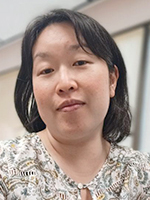
Project title: Oral and nutrition health promotion messaging: Bridging the gap
Health Canada offers research-based guidelines on the consumption of sugary foods and beverages, which state that consuming too many added sugars has been linked to an increased risk of tooth decay in children, excess calorie consumption and increased risk for chronic diseases. These guidelines are echoed by the World Health Organization, which strongly recommend that adults and children reduce their daily intake of free sugars to less than 10% of their total energy intake.
Current best practices emphasize nutrition education that prioritizes well-being, focusing on positive experiences and food literacy rather than fear-based nutrition lessons, particularly among children in their primary years. VCH public health dietitians promote the “all foods are available” model which takes a holistic approach to sugar. The KT Challenge Award will allow public health dietitian and dental hygienist teams to work collaboratively to co-create consistent and trauma-informed health promotion messaging on foods and beverages with added sugar.
“There is value for both the nutrition and dental teams to align their messaging on foods and beverages with added sugar by utilizing a best-practices approach,” says Wong. “It is our hope that in the long term, this messaging can be used to engage all prevention teams throughout VCH, who would utilize a trauma-informed lens to support VCH clients in adopting health-promoting attitudes and behaviours.”
KT Challenge Awards are made possible with the generous support of the BC Nurses Union, Richmond Hospital Foundation, VGH & UBC Hospital Foundation via Robert HN Ho Enhancing Patient Care program and VGH School of Nursing Alumnae Society in partnership with VCHRI.
Learn more about other award recipients at BC Cancer and Providence Health Care.


